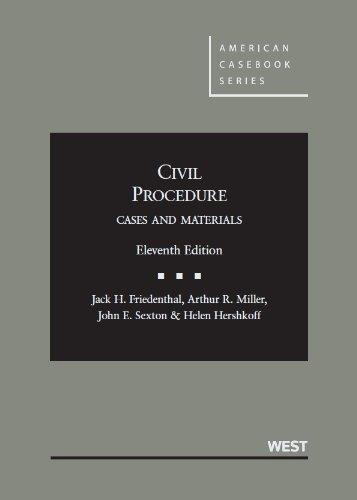8. Why did Saunders, a thoroughly capable lawyer, file what he knew was an inadequate rejoinder? The
Question:
8. Why did Saunders, a thoroughly capable lawyer, file what he knew was an inadequate rejoinder? The answer lies in a peculiar facet of the demurrer:
* * * [O]n demurrer the court will consider the whole record, and give judgment for the party, who on the whole, appears to be entitled to it. Thus, on demurrer to the replication, if the court think the replication bad, but perceive a substantial fault in the plea, they will give judgment, not for the defendant, but the plaintiff, provided the declaration be good; but if the declaration also be bad in substance, then, upon the same principle, judgment would be given for the defendant.
Stephen, The Principles of Pleading in Civil Actions 160 (Tyler ed. 1882). Thus, by making a rejoinder that he knew plaintiff would demur to, Saunders baited the trap he had set in his plea.
Step by Step Answer:

Civil Procedure Cases And Materials
ISBN: 9780314280169
11th Edition
Authors: Jack Friedenthal, Arthur Miller, John Sexton, Helen Hershkoff






